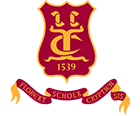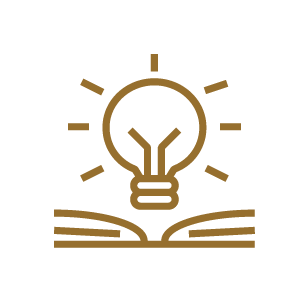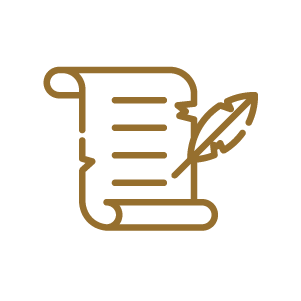In order for all students to acquire the knowledge, skills and cultural capital essential for their future success, we aim for high quality, effective teaching to ensure that long-term learning and progress are achieved by all students. In particular, we ensure that all pupils are challenged by teaching to the top and scaffolding the learning of those who need extra support.
Teaching and Learning
In order for all students to acquire the knowledge, skills and cultural capital essential for their future success, we aim for high quality, effective teaching to ensure that long-term learning and progress are achieved by all students. In particular, we ensure that all pupils are challenged by teaching to the top and scaffolding the learning of those who need extra support.
Our approach to teaching and learning is firmly rooted in the latest and best educational research. We believe that having high expectations for students and ourselves will have positive benefits for the whole school community. Therefore, we have identified the essential elements of a lesson that ensure all teaching is effective. Teachers make use of the following principles when planning their lessons:
- Every lesson has a clear purpose.
- Knowledge acquisition is sequenced so that new material builds on existing knowledge
- Retrieval practice is used to activate and consolidate prior learning
- Explanations are broken down into manageable chunks
- Strategies for the completion of tasks are modelled by teachers
- Supported and independent practice encourages collaborative and independent learning. Opportunities are provided regularly for the application of knowledge and skills in new scenarios.
- Checks of students’ understanding allow teachers to identify gaps in learning and re-teach concepts as needed.
- Reviews of learning ensure that students are aware of their progress during lessons. They are then able to plan their revision before assessments using metacognitive strategies.
- Feedback from teachers provides specific guidance so students can improve and progress.
In recent years, the school has focussed on developing student’s metacognitive skills, providing effective feedback and encouraging greater collaboration in lessons.
A focus on metacognition, the understanding of how to learn, has enabled our students to become more reflective learners. Students are encouraged to evaluate the effectiveness of their study skills both in class and in preparation for assessments. This enables them to select the most appropriate approach for future tasks and so developing their self-awareness and self-regulation. Consequently, they gain greater independence in their own learning journey and develop their resilience.
Effective feedback strategies fall into two areas. Teachers focus on highlighting errors so that students can then rectify their own responses. This supports the development of students’ metacognitive skills. Teachers also use modelling and analysis of exemplar answers to provide high quality advice and so ensure that students are fully aware of how to improve their work in the future.
Currently we are focussing on ensuring that students are appropriately assessed so teachers can monitor progress and adapt teaching accordingly. Our teachers are developing their live marking skills so students can get instant feedback to improve. We are also finding ways to use technology to support assessment, and investigating the best ways for students to assess their own learning. All of this sits alongside teacher marking, which continues to support our students to improve.
Literacy skills are an essential ingredient for success in all subject disciplines. Each subject is developing strategies and resources to support the development of reading, listening, writing and speaking skills in their area. This work is also supported by an explicit focus on widening students’ vocabulary by focusing on the academic and subject specific words relevant to each topic. Further details on our approach to literacy can be found here.
For our able students to fulfil their potential both in examinations and later life, they need to be able to tackle any type of challenge with confidence. Exposure to a broad and varied curriculum, including content beyond the National Curriculum and examination specifications, provides our students with the knowledge, understanding and cultural capital for them to be pro-active and responsible citizens in later life.
Educating More Able Children Booklet
Super Curricular Subject Information Booklet
In June 2014, the School’s provision for the More Able, Gifted and Talented was acknowledged by the successful achievement of the NACE (National Association for Able Children in Education) Challenge Award. In 2023, we received the NACE Reaccreditation for the second time and have now been invited to be assessed for the highly prestigious Challenge Award Ambassador status. The rigorous assessment process included close scrutiny of our provision, lesson observations as well as interviews with staff and students. We were very pleased with our feedback from the assessor which included the following statement:
was acknowledged by the successful achievement of the NACE (National Association for Able Children in Education) Challenge Award. In 2023, we received the NACE Reaccreditation for the second time and have now been invited to be assessed for the highly prestigious Challenge Award Ambassador status. The rigorous assessment process included close scrutiny of our provision, lesson observations as well as interviews with staff and students. We were very pleased with our feedback from the assessor which included the following statement:
“Overall, The Crypt School is an exceptional school which has continued to develop its practice and makes very good provision for its more able pupils. It recognises the need to challenge all pupils to achieve the highest levels of performance and this culture of high aspirations pervades every aspect of the school’s work. The whole atmosphere in the school is warm and lively, offering a positive learning environment and it was a pleasure to spend the day in the school.” (Lead Assessment, 2023)















